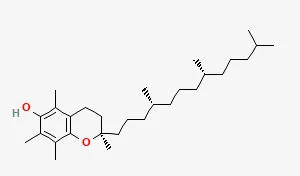
Vitamin E is a vital fat-soluble nutrient that plays a significant role in promoting overall health and enhancing physical performance. Known primarily for its powerful antioxidant properties, vitamin E helps protect cells from oxidative stress, which can be particularly beneficial for individuals engaged in regular physical activity. This essay delves into the various benefits of vitamin E from a fitness and health perspective, highlighting its importance for athletes and active individuals.
One of the most critical functions of vitamin E is its ability to combat oxidative stress. During exercise, especially high-intensity workouts, the body experiences an increase in the production of free radicals—unstable molecules that can cause cellular damage. This oxidative stress can lead to muscle fatigue, inflammation, and impaired recovery. By neutralizing these free radicals, vitamin E helps to protect muscle integrity and reduce the likelihood of exercise-induced muscle soreness and injury. Athletes who incorporate adequate amounts of vitamin E into their diets may find that they can train harder and recover more quickly, ultimately enhancing their performance levels.
In addition to its antioxidant capabilities, vitamin E supports immune function. A robust immune system is crucial for athletes, as intense training can temporarily suppress immune responses, making individuals more susceptible to infections. Vitamin E enhances the production and activity of immune cells, helping the body fend off illnesses. For those who engage in strenuous physical activity, maintaining a strong immune system is essential for consistent training and performance. By ensuring sufficient intake of vitamin E through diet or supplementation, athletes can bolster their defenses against common infections and illnesses that could disrupt their training schedules.
Vitamin E also plays a significant role in cardiovascular health. It helps protect the endothelial cells lining blood vessels from oxidative damage, which is vital for maintaining proper vascular function. Healthy blood vessels are essential for optimal athletic performance, as they facilitate efficient blood flow and the delivery of oxygen and nutrients to muscles during exercise. Furthermore, vitamin E has been shown to improve endothelial function, enhancing the ability of blood vessels to dilate and support increased blood flow during physical activity. This improved circulation is crucial for athletes looking to maximize their endurance and overall performance.
The positive effects of vitamin E extend beyond physical performance; they also encompass mental well-being. Research suggests that antioxidants like vitamin E may play a role in reducing symptoms of anxiety and depression. For athletes, maintaining a positive mindset is essential for peak performance. The stressors associated with training and competition can take a toll on mental health, but adequate levels of vitamin E may help alleviate some of these challenges by supporting cognitive function and emotional resilience.
For those focused on weight management or body composition goals, vitamin E can also be beneficial. Foods rich in vitamin E are often nutrient-dense yet low in calories, making them excellent choices for individuals looking to maintain a healthy weight while satisfying their nutritional needs. Incorporating foods such as nuts, seeds, spinach, and avocados into one’s diet not only provides essential nutrients but also promotes satiety due to their healthy fat content. This can help individuals manage their appetite effectively while still enjoying flavorful meals.
Incorporating vitamin E into one’s diet is relatively straightforward due to its presence in various delicious foods. Nuts and seeds are among the richest sources of this nutrient; almonds, sunflower seeds, and hazelnuts are particularly high in vitamin E content. Additionally, green leafy vegetables such as spinach and kale provide substantial amounts of this vital nutrient. Oils derived from these foods—such as olive oil or sunflower oil—can also serve as excellent sources of vitamin E when used in cooking or salad dressings.
While obtaining vitamin E through food sources is generally safe and effective, some individuals may consider supplementation to ensure they meet their nutritional needs. Athletes with higher oxidative stress levels may benefit from additional vitamin E intake; however, it is essential to approach supplementation with caution. Excessive doses can lead to adverse effects; therefore, consulting with healthcare professionals before starting any new supplement regimen is advisable.
In conclusion, vitamin E plays a multifaceted role in supporting health and fitness through its antioxidant properties, immune support, cardiovascular benefits, mental well-being enhancement, and assistance with weight management. By prioritizing adequate intake of this essential nutrient through a balanced diet rich in whole foods or considering supplementation when necessary, individuals can harness the potential benefits of vitamin E to enhance their athletic performance and overall health. Embracing this powerful nutrient as part of a comprehensive approach to wellness will empower individuals on their journey toward achieving optimal fitness while fostering resilience against illness and injury. With proper attention to vitamin E status, athletes and fitness enthusiasts alike can unlock new levels of potential in their physical endeavors while enjoying long-term health benefits that contribute to an active lifestyle.
Need your own dietary supplement manufacturer? Extremely competitive rates. We produce it all. Talk to us.
Comments are closed